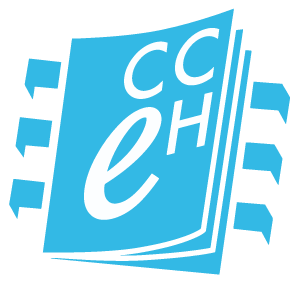We are glad to announce that the Cologne Center for eHumanities (CCeH) is an Observer institution in ELEXIS, the European Lexicographic Infrastructure, a Horizon 2020 project. ELEXIS is an ambitious project whose ultimate goal is to create a common working platform for lexicographers and publishers of lexical data. ELEXIS also aims at bridging the technical gap between the different communities involved in the project. The main beneficiaries will be dictionary users, both ‘normal’ users as well as researchers that will have access to an unparalleled amount of interconnected lexical data.
The project has different working packages, which range from creating a common data model, the ELEXIS data model; to extract lexical data from digitized printed dictionaries in PDF format; or to create digital dictionaries from scratch via Lexonomy, a cloud-based dictionary writing system. At the core of the technical infrastructure is the Dictionary Matrix, developed by John P. McCrae and his team from NUI Galway, that will link both monolingual and bilingual dictionaries at headword and sense level. All these resources will be accessible through a REST API. Therefore, they will be available for being employed by multiple applications, such as natural language processing (NLP) applications, desktop clients, mobile applications, etc.
What is the role of the CCeH in ELEXIS?
The University of Cologne has a rich tradition in digitizing and hosting South Asian language resources. The CCeH will provide its Sanskrit dictionaries to ELEXIS. The main platform for Sanskrit dictionaries worldwide is the Cologne Sanskrit Digital Dictionaries portal. This project was started in 1994 by Thomas Malten when Unicode and XML did not exist. In 2003 began conversion into XML format and in 2015 the Lazarus Project was initiated with the goal of converting the most complex dictionaries into TEI-P5 and also to create a common TEI schema for them. These dictionaries are available via the C-SALT APIs for Sanskrit Dictionaries and we offer for each dictionary a GraphQL and a REST API. These APIs have been created and maintained with Kosh, a framework developed by the CCeH and the Data Center for the Humanities. Kosh offers a state-of-the-art technology stack that can be employed to create and maintain APIs for any XML-encoded dictionary.
We are very happy to be part of the ELEXIS community and thus share resources and knowledge with the most important lexicographic project worldwide!
Contact:
Francisco Mondaca (f.mondaca@uni-koeln.de)
Felix Rau (f.rau@uni-koeln.de)

